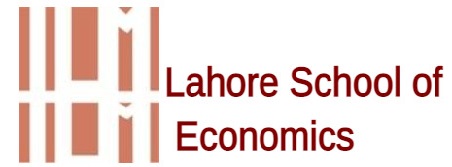PhD in Economics
Programme Mission:
To create scholars equipped with advanced skills in strategic quantitative and qualitative research methods with deep understanding of the core economics issues and the ability to collaborate with a variety of stakeholders and make significant contributions in the areas of national and international economics.
| Field: Industrial Organization | Field: Development Economics | Field: Macroeconomics and Political Economy |
|---|---|---|
| Winter Term: Sept. – Dec | Winter Term: Sept. – Dec | Winter Term: Sept. – Dec |
|
|
|
| Spring Term: Jan. – May | Spring Term: Jan. – May | Spring Term: Jan. – May |
|
|
|
Length of PhD in Economics Programme and Graduation Requirements: The PhD in Economics Programme is a 4 to 5 year degree programme requiring completion of 18 credit hours of coursework (excluding the pre-requisite courses) with a CGPA of 3.0 and a PhD dissertation.
Credit Hours and Courses: All courses are three credit hours each except the course indicated as 2 credit hours.
Semester Schedule: The academic year consists of 2 Semesters (Winter and Spring). The Winter Semester from September – December and Spring Semester from January - May consist of 16 -18 weeks.
Entrance Requirements: Admission to the Lahore School’s PhD in Economics programme is regulated through GRE (with a passing score of 60%) / HAT 3- Social Sciences (with a passing score of 60%) / a Lahore School Admissions Test (with a passing score of 60%), evaluation of a Statement of Purpose (including the research proposal) and an interview process. Candidates with a MS/MPhil or equivalent eighteen years of schooling with a minimum CGPA of 3.0 and above are eligible to apply to the PhD in Economics programme.
Pre-requisites: Applicants to PhD degree program must demonstrate competency at 600/700 level coursework in 4 subjects namely 1) Mathematical Economics 2) Econometrics 3) Advanced Macroeconomics 4) Advanced Microeconomics or any other courses to cover the deficiency areas to be determined by the admissions committee by joining the Lahore School’s Post Graduate Pre-requisites to PhD Programme. Admission to the Lahore School’s Post Graduate Pre-requisites to the PhD Programme will be decided by the Dean of Faculty.
The time period spent by a candidate for completing the pre-requisite requirement will not be counted toward maximum 8-years allowed for completion of PhD degree requirements
The Lahore School of Economics has the right to make modifications in its Policies including Admission Policies, Fees, Courses, Course Sequence, Seminar, Tutorial and Graduation requirements for any Undergraduate/ Graduate Programme. The School also reserves the right to prescribe pre-requisite course work to a candidate exclusive of regular coursework for the MS/MPhil/PhD Program
